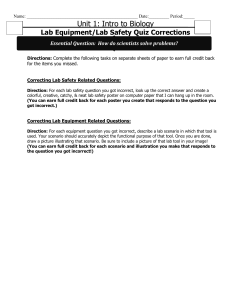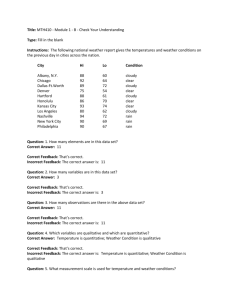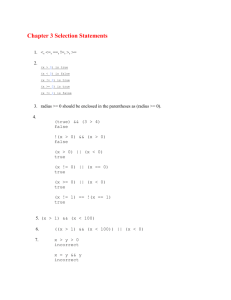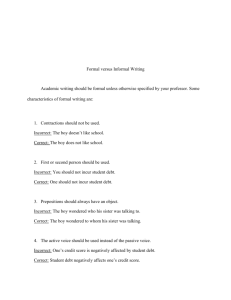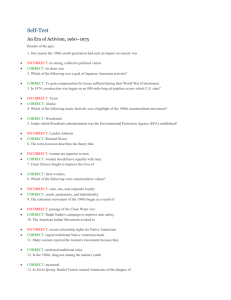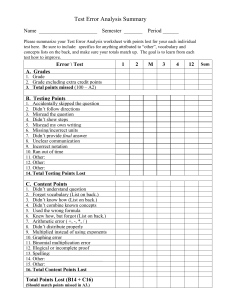International Law in a Global Economy
advertisement
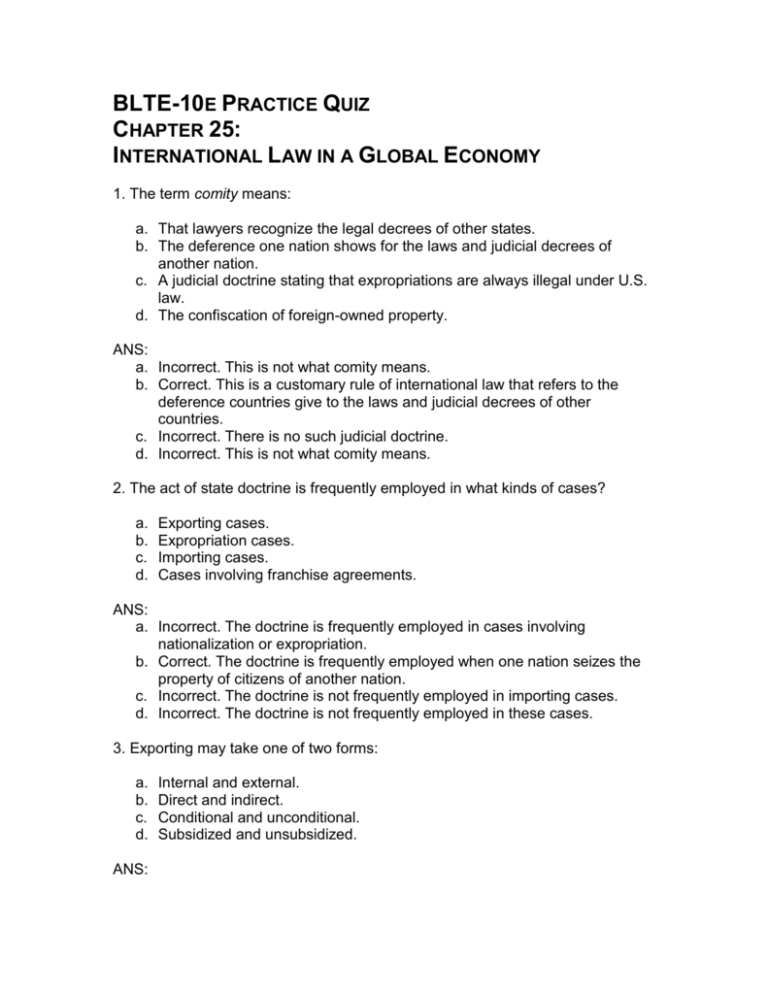
BLTE-10E PRACTICE QUIZ CHAPTER 25: INTERNATIONAL LAW IN A GLOBAL ECONOMY 1. The term comity means: a. That lawyers recognize the legal decrees of other states. b. The deference one nation shows for the laws and judicial decrees of another nation. c. A judicial doctrine stating that expropriations are always illegal under U.S. law. d. The confiscation of foreign-owned property. ANS: a. Incorrect. This is not what comity means. b. Correct. This is a customary rule of international law that refers to the deference countries give to the laws and judicial decrees of other countries. c. Incorrect. There is no such judicial doctrine. d. Incorrect. This is not what comity means. 2. The act of state doctrine is frequently employed in what kinds of cases? a. b. c. d. Exporting cases. Expropriation cases. Importing cases. Cases involving franchise agreements. ANS: a. Incorrect. The doctrine is frequently employed in cases involving nationalization or expropriation. b. Correct. The doctrine is frequently employed when one nation seizes the property of citizens of another nation. c. Incorrect. The doctrine is not frequently employed in importing cases. d. Incorrect. The doctrine is not frequently employed in these cases. 3. Exporting may take one of two forms: a. b. c. d. ANS: Internal and external. Direct and indirect. Conditional and unconditional. Subsidized and unsubsidized. a. Incorrect. Exporting is, by its nature, external only (outside the national borders). b. Correct. Exporting may be either direct or indirect. c. Incorrect. Exporting is not classified as conditional or unconditional. d. Incorrect. This is not the way exporting is classified. 4. You enter into a contract with Misha, a distributor from St. Petersburg, Russia. In your contract you specify that any disputes arising under the contract should be litigated in New York state courts. This would be called: a. b. c. d. A force majeure clause. A forum-selection clause. A choice-of-law clause. A destination clause. ANS: a. Incorrect. This is not a force majeure clause. A force majeure clause stipulates which unforeseen events (“acts of God”) would excuse the parties performance of a contract. b. Correct. This clause specifies which courts will be used in the event of a dispute, so it is a forum-selection clause. c. Incorrect. A choice-of-law clause designates the applicable law, and does not designate which court will resolve any disputes. d. Incorrect. There is no such thing as a destination clause. 5. If in your contract with Misha you want to specify that U.S. law will apply to a contract in the event of a disputes over the contract’s terms, you should include _____________ in your contract. a. b. c. d. An immunity-to-jurisdiction clause. A comity provision. A choice-of-law clause. An arbitration clause. ANS: a. Incorrect. You would not include such a clause. b. Incorrect. You would not include such a provision. c. Correct. A choice-of-law clause specifies which nation’s law will be applied to a contract in the event of a future disagreement over the contract’s terms. d. Incorrect. An arbitration clause would not, in itself, call for the application of a certain nation’s law in resolving the dispute. 6. The United Nations Convention on the Recognition and Enforcement of Foreign Arbitral Awards has been recognized by: a. Few countries, and has little impact on international business. b. Has been implemented in nearly one hundred countries, including the United States. c. Has been held to be in violations of international law by the World Court. d. Violates provisions of the WTO. ANS: a. Incorrect. The convention has been widely accepted. b. Correct. The convention has been accepted by nearly one hundred countries, including the United States, and assists in the enforcement of arbitration clauses. c. Incorrect. The convention does not violate international law. d. Incorrect. The convention does not violate the WTO. 7. The foreign exchange rate is: a. The price of gold set each day by the New York Stock Exchange. b. The price of a unit of one country's currency in terms of another country's currency. c. A written instrument that promises to pay a draft or demand for payment. d. The merchandise trade deficit of a country. ANS: a. Incorrect. The NYSE does not set the price of gold, the market does, and this is not the foreign exchange rate. b. Correct. This is a description of the foreign exchange rate, which is a worldwide system in which foreign currencies are bought and sold. c. Incorrect. The foreign exchange rate is not a written instrument. d. Incorrect. The foreign exchange rate is not the merchandise trade deficit, though this deficit will be affected by the exchange rate. 8. Suppose that the U.S. government charges $1.50 to import each and every DVD player made in Taiwan. This tax is: a. b. c. d. A probate tax. A tariff. A quota. An export incentive. ANS: a. Incorrect. This is not a probate tax. b. Correct. This is tax on imports. Taxes on imports are called tariffs. c. Incorrect. A quota is a limit on the amount of foreign goods that can be imported enter a country. d. Incorrect. This is not an export incentive. 9. The international organization charged with the responsibility for eliminating trade barriers, including tariffs, is: a. b. c. d. UNESCO. UNICEF. The WTO. The WWF. ANS: a. Incorrect. UNESCO is an economic, social, and cultural organization of the United Nations. b. Incorrect. UNICEF is a children's organization of the United Nations. c. Correct. The WTO, or World Trade Organization, is the international organization responsible for eliminating trade barriers. d. Incorrect. The World Wildlife Fund does not eliminate trade barriers. 10. Which of the following is not a source of international law: a. b. c. d. international customs. treaties and international agreements. international common law. international organizations and conferences. ANS: a. Incorrect. Sources of international law include international customs, treaties and international agreements, and international organizations and conferences. b. Incorrect. Sources of international law include international customs, treaties and international agreements, and international organizations and conferences. c. Correct. Common law refers to a body of law developed from custom or judicial decisions in English and U.S. courts; it is not “international” because many countries do not follow the common law tradition. Therefore, this is not a source of international law. d. Incorrect. Sources of international law include international customs, treaties and international agreements, and international organizations and conferences.

